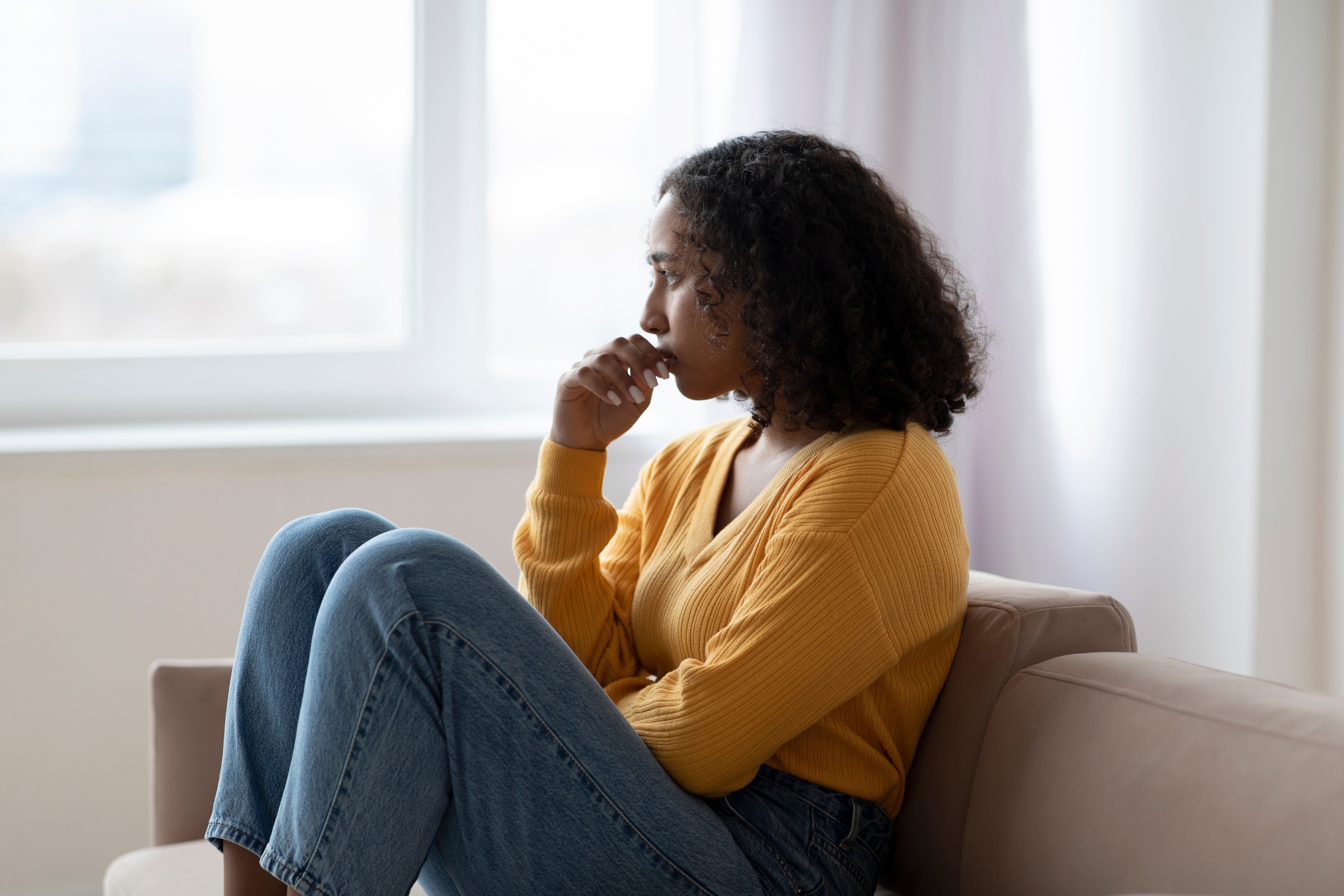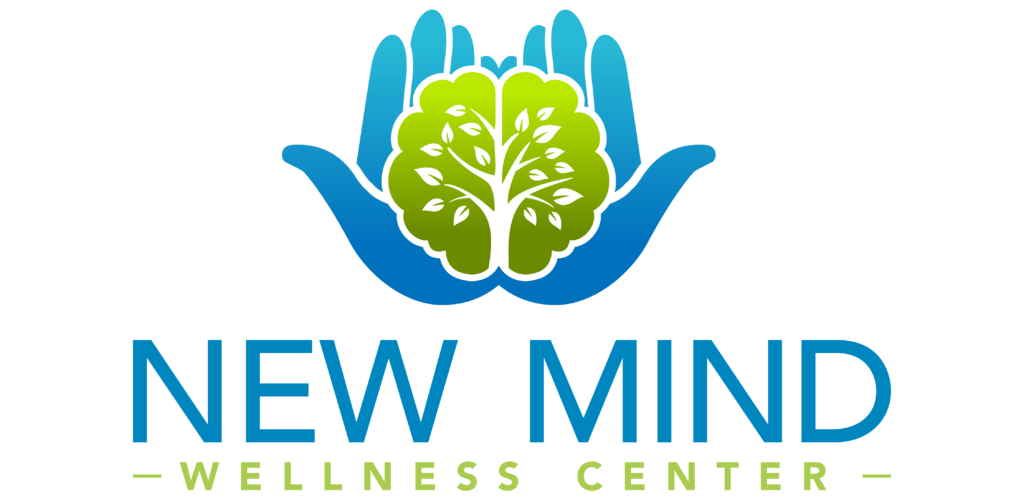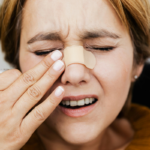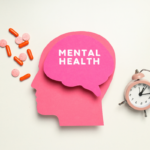
What Does Depression Feel Like?
What does depression feel like, or look like? When you know how to identify the symptoms of depressive disorders, you’ll be better prepared to get help for yourself or intervene on behalf of a loved one.
To learn more about mental health recovery options in Philadelphia, call us today or verify your insurance online. We look forward to helping you get started on your personal recovery journey.
What Are the Symptoms of Depression?
The term depression can refer to several conditions, including:
- Major depressive disorder (MDD)
- Persistent depressive disorder
- Postpartum depression
- Seasonal affective disorder (SAD)
As established in the fifth edition of the Diagnostic and Statistical Manual of Mental Disorders (DSM-5), to be diagnosed with major depressive disorder and understand what depression feels like, a person must experience five or more of the following symptoms most of the day, for most days, over a period of at least two weeks:
- Depressed mood
- Diminished pleasure or interest in all or most activities
- Significant increase or decrease in appetite
- Insomnia or hypersomnia
- Fatigue or loss of energy
- Feelings of worthlessness or inappropriate guilt
- Anxiousness and restlessness, or slowed thoughts and reactions
- Diminished ability to think, concentrate, or make decisions
- Recurrent thoughts of death
To be diagnosed with persistent depressive disorder, a person must experience similar symptoms for a period of at least two years.
The symptoms of postpartum depression will occur during or shortly after a person gives birth, while people who have seasonal affective disorder will develop symptoms at certain times of the year.
In all cases, the symptoms must be severe enough to cause substantial distress and/or impaired functioning in important areas of life.
What Does Depression Feel Like?
Reading diagnostic criteria in the DSM-5 or other resources can provide you with some insights into depressive disorders, but clinical information may not be enough to understand what it is like to live with one of these conditions.
What does depression feel like? The experience can vary depending on a host of individual factors.
Common Signs and Symptoms of Depression
- Some days, you find it difficult to summon the energy and motivation to get out of bed.
- You sometimes miss school or call in sick to work simply because of a lack of energy or motivation, or because the thought of trying to get through the day is simply overwhelming.
- You have spent entire days in bed, on the couch, or otherwise immobile and inactive.
- Even after spending an excessive amount of time sleeping or lying on the couch, you remain exhausted.
- When you do go to school or work, it’s hard to focus on what you need to accomplish, which has led to a significant downturn both the quality and quantity of your work.
- Even small tasks, like making a meal, paying bills, or cleaning your living space, feel like insurmountable obstacles.
- You feel as though your life has no purpose, or that you have nothing of value to offer to your loved ones, your community, or the world at large.
- You may go several days, or even weeks, without showering, brushing your teeth, or otherwise tending to your personal hygiene.
- You have been eating much more or much less than you used to. When you do eat, it is often fast food, junk food, cereal, or other meals that are easy to prepare. Which have little or no nutritional value.
- You’ve begun to use alcohol or other drugs as a means of numbing yourself, so that you can temporarily escape your difficult emotions.
- You’ve been thinking about harming yourself or ending your own life.
Important Note:
If you fear that you or someone you know is in imminent danger of suicide, get help immediately. You can contact the 988 Suicide & Crisis Lifeline 24 hours a day, seven days a week, either online or by calling or texting 988 from any phone in the U.S.
What Does Depression Look Like?
Understanding what depression feels like can be helpful if you’re trying to decide if you should seek help. But if you’re concerned about a friend or family member, it can be hard to know what they’re thinking. It may be even harder to understand what they’re feeling.
In this situation, you may want to keep an eye out for signs such as:
- They have dramatic mood swings, which may include becoming deeply sad for no apparent reason or exhibiting uncharacteristic outbursts of anger.
- They seem to be neglecting their appearance, which can include not brushing their hair, or wearing the same clothes several days in a row.
- They have unintentionally gained or lost a considerable amount of weight.
- You don’t see them or hear from them nearly as often as you used to. When you make plans to get together, they often cancel at the last minute.
- When you do get together with them, they often seem to be distracted, aloof, or preoccupied.
- Their grades in school have begun to decline or their performance at work has started to get noticeably worse.
- They say they wish they had never been born, or that they could simply disappear, which can be signs of suicidal ideation.
- They have begun to throw away or give away valued possessions, which can be a sign that they are seriously thinking about suicide.
Anyone who develops the types of symptoms we’ve discussed on this page may be in crisis, and they should be evaluated by a qualified professional. With an accurate diagnosis and appropriate care, people can make great strides toward a healthier and more hopeful future.

How Is Depression Treated?
Depression treatment can take many forms, and there’s no single technique, approach, or course of treatment that is ideal for everyone. What’s most important is ensuring that the services a person receives align with their strengths, needs, and goals.
In general, comprehensive treatment for depression often involves a combination of medication and therapy.
Medications
Examples of prescription medications that have proved to be effective at easing the symptoms of depression include:
- Selective serotonin reuptake inhibitors (SSRIs) such as fluoxetine (Prozac), sertraline (Zoloft), and paroxetine (Paxil)
- Serotonin-norepinephrine reuptake inhibitors (SNRIs) such as venlafaxine (Effexor), desvenlafaxine (Pristiq), and duloxetine (Cymbalta)
- Tricyclic antidepressants such as nortriptyline (Pamelor), clomipramine (Anafranil), and amoxapine (Asendin)
Therapy
Therapy for depression can help people learn to develop healthier coping strategies and manage symptoms that aren’t alleviated by medication. Therapeutic services that are often included in depression treatment include:
- Individual, group, and family therapy
- Cognitive behavioral therapy (CBT)
- Dialectical behavior therapy (DBT)
- Psychodynamic therapy
- Expressive arts therapy
Additional services that can be helpful include:
- Transcranial magnetic stimulation (TMS)
- Psychoeducation sessions
- Mindfulness and meditation instruction
- Yoga and breathwork
- Genetic testing
Before a person transitions out of treatment, they should also receive a customized discharge plan, which may include information about community-based resources that can support their continued progress.
Find Depression Treatment in Philadelphia
New Mind Wellness offers life-affirming outpatient care for adults whose lives have been disrupted by depressive disorders and other mental health concerns.
When you choose our depression treatment center in Philadelphia, you can receive personalized services at the partial hospitalization, intensive outpatient, and outpatient levels. At every level of care, you can expect to work in active collaboration with a team of experienced and compassionate professionals.
We understand the many ways that depression can undermine your efforts to live a fulfilling and satisfying life, and we are committed to providing the customized solutions you deserve.
To learn more about how we can help you or a loved one, or to schedule a free assessment, please visit our Contact page or call us today.




